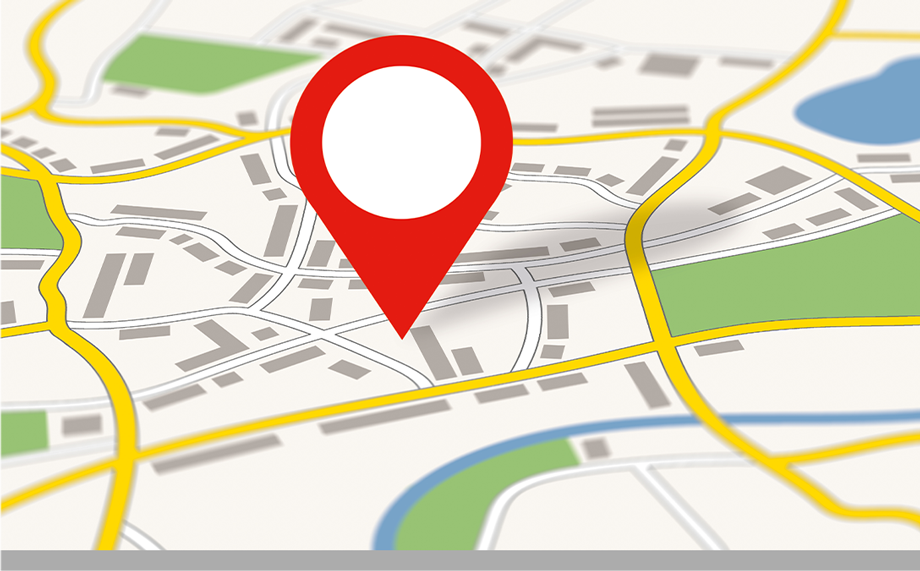Welcome to the Michigan State Profile Page! This page features a sample of survey and research results from a comprehensive review of state and local home modification activities across the country. It has a special focus on the aging population and the efforts of State Units on Aging, Area Agencies on Aging, and Native American aging service programs that are funded by the Older Americans Act Title VI Grants for Indian Tribal Organizations.
STATE PROFILE: Michigan

Michigan
A State Profile of Home Modification Activities
SPOTLIGHT ON STATE LEVEL HOME MODIFICATION ACTIVITIES
This section shares information that demonstrates the need for home modification in this state and highlights some of the state’s important home modification efforts, policies, and funding sources.
SPOTLIGHT ON LOCAL HOME MODIFICATION EFFORTS
How are agencies across the country responding to their communities’ home modification needs? Read about stand-out home modification efforts the aging network is conducting in this state.
Check back as new updates will be posted periodically! Have any changes or additions? Please contact homemods@usc.edu
SPOTLIGHT ON STATE LEVEL HOME MODIFICATION ACTIVITIES
Home Modification and Repairs for Older Adults: Challenges and Opportunities for State Units on Aging: This report by the USC Fall Prevention Center of Excellence and ADvancing States reports on a national survey
Michigan Aging and Adult Services Agency (State Unit on Aging)
State Units on Aging (SUAs) are designated state-level agencies that develop and administer state plans that advocate for and provide assistance, including home modifications or repairs, to older residents, their families, and adults with physical disabilities. SUAs administer funds, including Older Americans Act funds, which may be used to support home modification or repair services through local Area Agencies on Aging and other state and local entities. Program(s) with home modification or repairs include:
1. The Michigan State Unit on Aging has established home repair and home modification/home injury control as approved services under Older Americans Act (OAA) Title III-B. In FY 2018, Michigan Area Agencies on Aging expended $191,782 in OAA and local funds on home modification/home injury control and $79,500 on home repair services. Home modification/home injury control programs served 1,245 individuals with 4,196 units of service.
2. The Michigan State Unit on Aging has a Weatherization Program run through the Area Agencies on Aging that offers home modifications.
MICHIGAN DEPARTMENT OF HEALTH AND HUMAN SERVICES: MEDICAID PROGRAM
1. Children’s Waiver Program
Program Description: The Children’s Medicaid Waiver Program provides community-based services for children who are under age 18 who have a documented developmental disability and need medical or behavioral services at home. Supports include environmental accessibility adaptations.
Population Served: Individuals with autism, developmental disabilities, and intellectual disabilities age 0–17 years who are Medicaid-eligible and meet medical and behavior criteria.
2. Habilitation Supports Waiver
Program Description: This home and community-based, active treatment and support program assists individuals with severe developmental disabilities to live independently with support in their community of choice as a community based alternative to living in a group home. It can include environmental modifications individuals.
Population Served: Medicaid-eligible persons of all ages with developmental disabilities as defined by federal law who, without the availability of home and community based services, would require the level of care provided in an intermediate care facility.
3. Health Link Home and Community-Based Services
Program Description: The Health Link Medicaid Waiver provides home and community-based services for individuals who are age 65 and older and for individuals with physical disabilities ages 18 through 64 years old. The waiver provides services to these individuals who, absent the waiver, would require a nursing facility level of care. Services include but are not limited to: respite, adaptive medical equipment and supplies, assistive technology, chore, and environmental modifications.
Population Served: Individuals age 65 and older, and individuals with physical disabilities age 21-64.
4. MI Choice Waiver Program
Program Description: The Michigan Choice Medicaid Waiver program provides services and support coordination in the home, including environmental accessibility adaptations. It is administered via Area Agencies on Aging and other home and community-based care agencies across the state of Michigan.
Population Served: Individuals must meet the Medicaid State Agency’s definition of nursing facility level of care and be age 65 and older or age 18-64 with a physical disability.
MICHIGAN REHABILITATION SERVICES/UCP MICHIGAN
Assistive Technology Loan Program
Program Description: The maximum $30,000 loan covers any item, piece of equipment, or device that will improve independence and quality of life. Examples include: wheelchairs, scooters, hearing aids, vision aids, vehicle modifications, and home modifications (e.g., ramps, widened doorways, and roll-in showers).
Population Served: Michigan residents who have a disability, older adults who need assistive technology, or a family member or guardian may apply on behalf of the person with the disability.
MICHIGAN STATE HOUSING DEVELOPMENT AUTHORITY
Property Improvement Program (PIP) Loans for Homeowners
Program Description: Low-interest loans with terms of up to 20 years designed to support home improvements that substantially protect or improve the basic livability of a single-family or manufactured home. A maximum $25,000 loan may cover major systems repairs, replacement and energy efficiency updates and include kitchen and bathroom remodeling.
Population Served: Michigan homeowners with equity in their home, an annual household income of up to $125,300, and a credit score of at least 620. The home must be the borrower’s primary residence.
MICHIGAN STATE ASSISTIVE TECHNOLOGY PROGRAM
Michigan Assistive Technology Program (MATP)
Program Description: This program provides low cost, fixed-rate loans of up to $30,000 to qualified applicants to finance the purchase of assistive technology devices and/or services, including modification of vehicles and homes, wheelchairs, computers, and hearing aids. This is a joint effort of the United Cerebral Palsy of Michigan, Disability Network agencies throughout the state, Michigan State University Federal Credit Union (MSUFCU) in East Lansing and, for the twelve counties of northeast Michigan, Region 9 Area Agency on Aging.
Population Served: The Program is available to any resident of the state of Michigan who has a disability, or an older adult who needs assistive technology.
The State Assistive Technology Grant Program, funded under the Assistive Technology Act of 2004, supports comprehensive, statewide programs in each state that improve the provision of assistive technology (often home modification-related) to individuals with disabilities of all ages.
MICHIGAN STATE FALL PREVENTION COALITION
Michigan Fall Prevention Partnership
For an up to date list of all state fall prevention coalitions, visit: https://www.ncoa.org/resources/list-of-state-falls-prevention-coalitions/
SPOTLIGHT ON LOCAL HOME MODIFICATION EFFORTS BY THE AGING NETWORK
1. To locate the Area Agency on Aging in your state, please contact Eldercare Locator at https://eldercare.acl.gov/Public/Index.aspx
2. Data Brief: Building Community Capacity to Serve Older Adults: The Role of Area Agencies on Aging in Home Modifications and Repairs
This Data Brief highlights key findings from the 2019 National Survey of Area Agencies on Aging on how Area Agencies on Aging are providing and funding home modification and repair activities. It was developed by the USC Fall Prevention Center of Excellence in partnership with the National Association of Area Agencies on Aging as part of the Administration for Community Living project, “Promoting Aging in Place by Enhancing Access to Home Modifications.”
3. Featured Efforts:
A Matter of Balance: Fall Prevention
Detroit Area Agency on Aging
Detroit, Michigan
The Detroit Area Agency on Aging offers the evidence-based program, A Matter of Balance, that focuses on reducing the fear of falling and increasing the activity levels of older adults who have concerns about falling. The program is led by two trained facilitators and consists of 8 two-hour sessions over four weeks. It includes the opportunity to learn about how to make the home safer to avoid falls.
Handicap Accessibility Program
Grand Traverse Band of Ottawa and Chippewa Indians
Peshawbestown, Michigan
The Housing Department of the Grand Traverse Band of Ottawa and Chippewa Indians has a Handicap Accessibility Program that provides ramps, bathroom renovations (grab bars, handicap toilet, walk in showers, walk in tubs, sinks), kitchen renovations (counter and cupboard lowering, roll up sinks), and door widening. A maximum of $20,000 is available to older homeowners or homeowners with a disability who also meet income requirements.
HandyMan Service
Midland County Senior Services
Midland, Michigan
Midland County’s Senior Services offers a HandyMan Service for older adults residing in the county. A volunteer team helps older adults maintain their homes by making them safe and secure. Services are free but donations are requested. A handyman team may provide the following services: securing exterior doors, windows and screens; repairing lights and improving exterior areas of the home to ensure safety; addressing slip hazards inside the home; ensuring secure stairs and handrails; and installing grab bars and raised toilet seats.
HandyMan Program
Bay County Department on Aging
Bay City, Michigan
The Bay County Department on Aging offers a Handyman Program that includes “light” home repairs. A fee is determined based on income and recipients are responsible for the cost of all materials. Home repairs requiring a permit or a licensed professional are not eligible.
Home Safety Assessments
Region 2 Area Agency on Aging
Brooklyn, Michigan
The Region 2 Area Area Agency on Aging has a Home Safety Assessments program that examines safety issues inside and outside of the house for individuals in the community. The assessments are conducted by a home safety specialist and a report is provided with recommended modifications. The Information and Referral staff identifies resources to assist with any home modifications or repairs.
Minor Home Repair Service
Gratiot County Commission on Aging
Ithaca, Michigan
The Minor Home Repair Service of the Gratiot County Commission on Aging provides a home maintenance service focused on extending the life of an owner-occupied home and helping to maintain minimum health and safety standards. Clients pay for the materials. Services may include: minor roof repair, window repair, correct faulty plumbing, repair stairs, install or repair railings, and building wheelchair ramps as needed.
This page is brought to you by the project, “Promoting Aging in Place by Enhancing Access to Home Modifications,” supported, in part, by grant number 90PPHM0001 from the U.S. Administration for Community Living, Department of Health and Human Services, Washington, D.C. 20201. Grantees undertaking projects with government sponsorship are encouraged to express freely their findings and conclusions. Points of view or opinions do not, therefore, necessarily represent official ACL policy.


